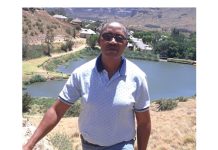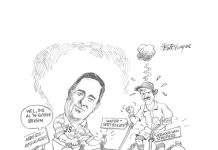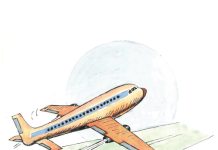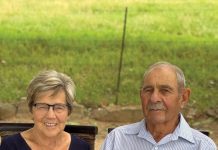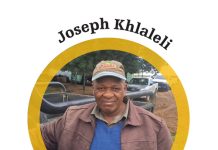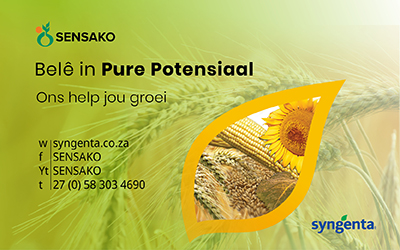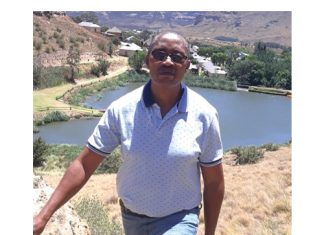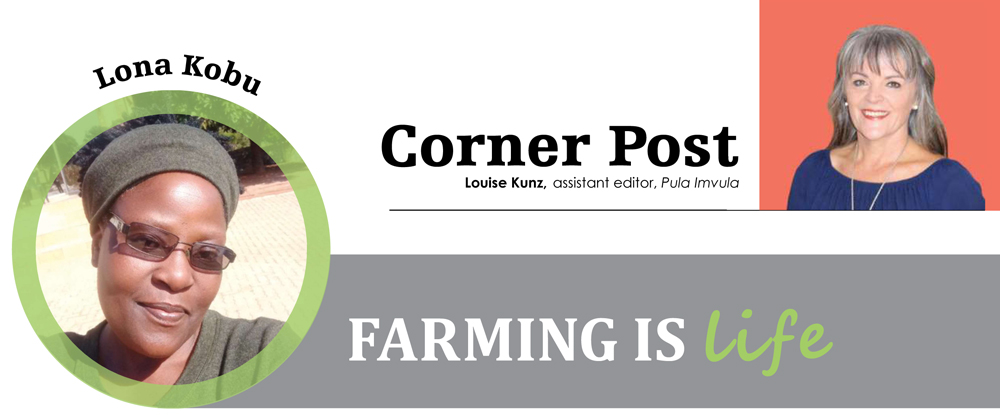 Lona Kobu (42) may only farm on a small piece of land, but she does not see herself as a ‘small farmer’. After completing her school career, she worked in the mining industry, but always felt a calling to follow in her parents’ footsteps and work the land to grow food. So, three years ago, Lona decided to quit her job and realise her lifelong dream. Her parents, January (85) and Josephina (79), were subsistence farmers, but are now too old to farm.
Lona Kobu (42) may only farm on a small piece of land, but she does not see herself as a ‘small farmer’. After completing her school career, she worked in the mining industry, but always felt a calling to follow in her parents’ footsteps and work the land to grow food. So, three years ago, Lona decided to quit her job and realise her lifelong dream. Her parents, January (85) and Josephina (79), were subsistence farmers, but are now too old to farm.
After joining Grain SA, she discovered that growing maize and vegetables does not just put food on the table, but that it can actually be a ‘business’ which puts cash in her pocket. Apart from maize, Lona plants tomatoes, spinach and green peppers. Surplus produce is sold in the community and the money she receives buys what is needed to support her daughter and parents. Besides the crops, Lona also owns some cattle, goats and chickens.
She handles all the work on her own, but has a friend who helps her with the planting which is done by hand. In turn, she helps her friend. She believes that farming is a wonderful career and that more people should get involved in agriculture. ‘Everything is so expensive these days. If you farm, you can put food on the table and help others to have food too.’
This single mother of a 13-year-old daughter is dreaming of becoming one of the Grain SA Farmer Development Programme’s success stories. Judging by the crop on the field, this dream may very well become a reality.
Lona’s story
Why farming?
It is just natural for me to be a farmer – it’s in my blood. I love farming, because farming is life. It is wonderful to see your hard work pay off when the crops startto grow.
What difference has Grain SA made in your farming operation?
Since joining Grain SA and attending the study group meetings, my farming methods and agricultural knowledge have improved so much. I have attended four meetings and have learned more about soil management, soil pH, maize varieties, the fertilisation on maize, and weed and pest control. We always used kraal manure, but now I can see what a difference store-bought fertiliser makes. I didn’t even know that the soil should be analysed to see what is needed to improve the crops. I am learning how to farm now with these better production practices.
What challenges do you face?
At this stage animals are my biggest ‘enemy’. The birds and monkeys steal the seeds and eat whatever is starting to grow, and cattle enter my field and eat my crop. I have to be on the lookout all day to protect my crops.
What is your dream for the future?
I would love to have more land, so that I can produce more maize. Farming is all that I want to do.

Farm facts
Farm: Communal ground
Nearest town: Burgersfort
Region: Limpopo
Size: 0,5 ha of communal land
Type: Mixed (plants maize and vegetables and have livestock)
GRAIN SA’S CONTRIBUTION
- Joined Grain SA in November 2021
- Member of the Ribe study group
Training courses completed:
Introduction to maize production (5-day course)
A mentor’s view:
Jerry Mthombothi, regional development manager at the Mbombela office who looks after farmers in Mpumalanga and Limpopo, says Lona is a promising subsistence farmer. In the 2021/2022 planting season, she harvested five 50 kg bags on 0,25 ha. During the 2022/2023 she is expecting to harvest about twenty 50 kg bags. She will increase her field up to 1 ha in the near future and produce more to support her family.
Advice to others:
- Check your soil. Healthy soil means healthy plants.
- Learn from others because knowledge is important.
- Be on the farm. Scout your fields daily and make sure that everything is right.
A special word of thanks to Standard Bank, who is another one of the partners of Grain SA’s Farmer Development Programme (FDP). According to MC Loock, senior manager: Agribusiness of Commercial Banking at Standard Bank, it was an easy decision for Standard Bank to become involved in Grain SA’s FDP. The success of the programme also serves as proof that it is possible to finance the developing agricultural market sustainably.



